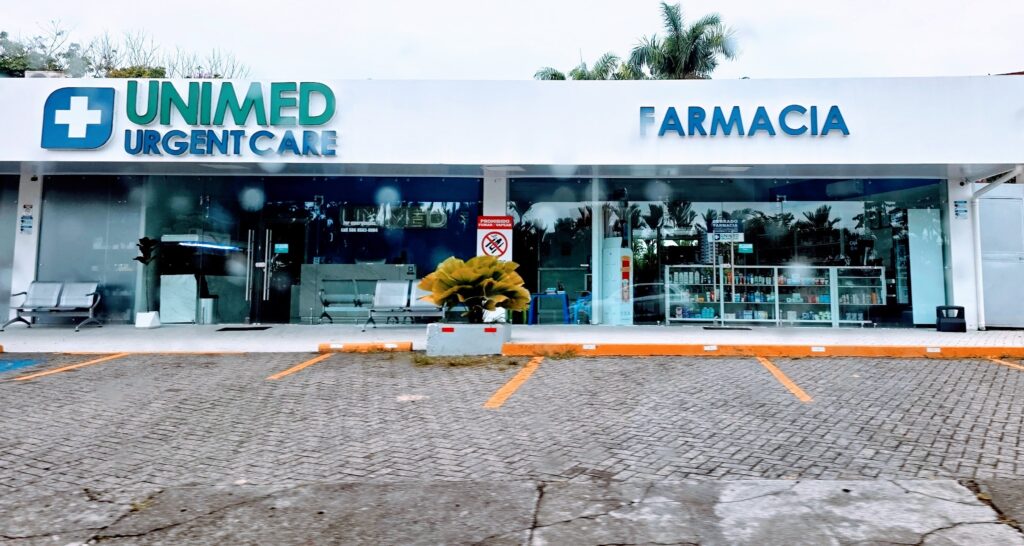Last Updated: May 20, 2025
If you are having an emergency right now, call 911 – Costa Rica’s emergency phone number.
If you are planning a trip to Costa Rica, then you should know what you need to do in case things don’t go according to plan. This is especially important if you are traveling with kids.
Costa Rica Hospitals and Clinics
Hospitals – Costa Rica has both public hospitals (Caja Costarricense de Seguro Social or CCSS) and private hospitals/clinics. Private hospitals generally have English-speaking staff and more amenities, but at higher costs. Both public and private hospitals have emergency departments that can function as urgent care for more serious (but non-critical) issues.
Pharmacies – For less urgent situations, pharmacies (farmacias) in Costa Rica are staffed by licensed professionals who can provide advice and many medications without prescriptions.
Urgent Care – Costa Rica also has urgent care clinics, which are often called “clínicas” or “centros de atención urgente.” These provide an excellent middle ground between a doctor’s office visit and a full emergency room.
How to use your Travel Insurance in Costa Rica
- Always carry your passport and travel insurance information with you. Most facilities will require upfront payment if you don’t have insurance that they accept.
- Contact your travel insurance provider as soon as possible. Many require notification before treatment for coverage. The number to contact will be on your policy.
- A good travel insurance plan will cover doctor visits, medications and emergency procedures.
- Always remember to ask for and save receipts to help you with insurance reimbursements
- For minor issues, it might be best to just pay in cash rather than try to go through travel insurance. Costs for medical care are significantly lower in Costa Rica than in the US
Ask for Help
- If you’re staying at a hotel or resort, the staff can often help arrange transportation and recommend medical facilities.
- Consider contacting your embassy or consulate if you need additional assistance. They can help find english speaking doctors and coordinate your care.
Before you Travel
- Research and purchase a good travel medical insurance plan. Your insurance back home is unlikely to cover you abroad.
- Print and keep emergency contacts handy
- Download Google Translate or other translation apps to help you communicate
- Always pack a fever reducer and pain reliever medicine (like Tylenol or Kids Tylenol), hydrocortisone or anti-itch cream, constipation relief medicine and allergy medications if needed. This should get you through most issues.
Ready for the Next Step?
- Complete Step-by-Step Guide to Costa Rica for Families – Know everything you need about flights, food, currency, rental cars, accommodation and activities
- 7 Day Itinerary from San Jose Airport or 7 Day Itinerary from Liberia Airport
- Which Airport should I fly into?
- Download a Free Wildlife Spotting Guide and other Costa Rica Fun Facts for Kids by subscribing to my Newsletter.
Was this guide useful? Your feedback would mean the world to me. You can also support me by Subscribing to my email list to get notified when I add more guides to this site. If you need more help with your trip, Contact me to learn more.

